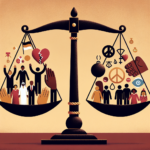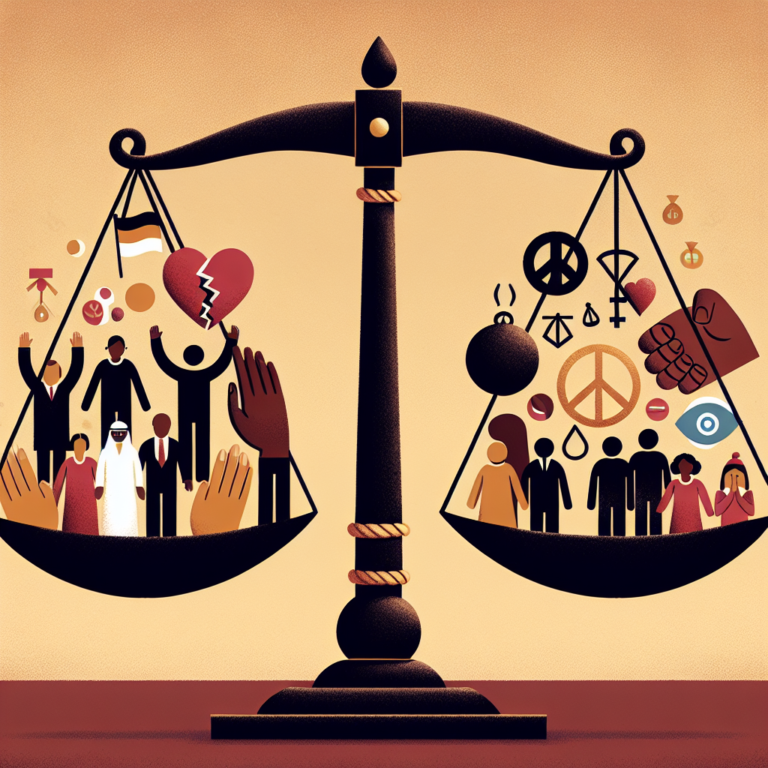
Learning Disabilities Aren’t Just for Kids: The Adult Perspective
Introduction
In a world increasingly focused on inclusivity and understanding, learning disabilities remain stigmatized, often perceived as challenges exclusive to children. However, the reality is starkly different: Learning disabilities aren’t just for kids, and their effects can ripple into adulthood, impacting careers, relationships, and overall quality of life. Adult perspectives on learning disabilities reveal stories of struggle, resilience, and triumph that often go unnoticed.
This article shines a light on the nuances of learning disabilities from an adult viewpoint, offering essential insights that empower those affected and educate the broader community. As we navigate this complex landscape, we will discover not only the challenges faced by adults with learning disabilities but also the keys to unlocking their potential.
Understanding Learning Disabilities: Beyond Childhood
What Are Learning Disabilities?
Learning disabilities (LDs) are neurological disorders that affect the brain’s ability to receive, process, and respond to information. They can manifest in various ways, affecting reading, writing, math, and interpersonal skills. Common types of learning disabilities include:
- Dyslexia: Affects reading and language processing.
- Dyscalculia: Difficulties with numbers and mathematical concepts.
- Dysgraphia: Impacts writing ability and fine motor skills.
- Auditory Processing Disorder: Challenges in processing auditory information.
While LDs are often identified during childhood, many adults continue to grapple with these challenges.
The Importance of Recognizing Adult Learning Disabilities
Acknowledging that learning disabilities aren’t just for kids is crucial for several reasons:
Workplace Accommodations: Adults may require workplace accommodations to perform effectively. Understanding LDs can facilitate supportive environments.
Self-Advocacy: Many adults do not realize they can seek support, leading to feelings of isolation. Recognizing that they’re not alone can empower them to seek help.
- Mental Health Awareness: Adults with learning disabilities may experience anxiety, depression, or low self-esteem. Understanding the connection between LDs and mental health is vital for holistic support.
Breaking Down Barriers: Real-World Case Studies
Case Study 1: Sarah’s Journey with Dyslexia
Background: Sarah was diagnosed with dyslexia at the age of 8 but struggled with reading and writing throughout her school years.
Challenges: In adulthood, Sarah found it difficult to advance in her career as a marketing analyst, often feeling overwhelmed by written reports and emails.
Relevance: Sarah sought out resources to better understand her learning disability and discovered workplace accommodations, such as assistive technology and flexible deadlines, allowing her to thrive professionally.
Analysis: Sarah’s experience emphasizes that learning disabilities aren’t just for kids, as adulthood brings new challenges that require adaptation and support.
Case Study 2: Mark and Dyscalculia
Background: Mark has faced difficulties with numbers and calculations from a young age. As an adult, he pursued a career in finance despite his dyscalculia diagnosis.
Challenges: He often made mistakes on spreadsheets and found complex financial models daunting, which hindered his performance.
Relevance: With the help of a mentor, Mark was able to find strategies that utilized his strengths, such as collaboration and visual representations of data, ultimately leading to a leadership position.
Analysis: Mark’s narrative illustrates the importance of mentorship and resourcefulness, reinforcing the idea that learning disabilities aren’t just for kids—a mindset shift can open new doors.
The Adult Experience: Common Challenges Faced by Adults with Learning Disabilities
Employment Issues
Many adults with learning disabilities face unique challenges in the workplace, including:
- Restrictions in Job Selection: Certain professions may seem unattainable due to LD-related skills deficits.
- Stigma and Misunderstanding: Adults often experience stigma, leading to misunderstandings among colleagues and employers.
- Lack of Support: Unlike in educational settings, workplaces frequently lack adequate support systems.
Relationship Dynamics
Learning disabilities can impact personal and professional relationships, causing misunderstandings or conflicts. Communication barriers often arise, making it difficult to express needs and feelings.
Mental Health Challenges
Adults with learning disabilities often contribute to higher rates of mental health concerns, such as anxiety and depression. The stigmatization and frustration stemming from their challenges can exacerbate these issues.
The Path Forward: Strategies for Adults with Learning Disabilities
Seeking Diagnostic Evaluation
For adults who suspect they have a learning disability, a comprehensive evaluation is a crucial first step. This can offer clarity, validate their experiences, and open doors for supportive resources.
Building a Support Network
A reliable support network can include friends, family, mentors, or professional organizations that specialize in learning disabilities. Sharing experiences fosters understanding and encouragement.
Emphasizing Strengths
Acknowledgment of personal strengths is essential. Leveraging creativity, problem-solving abilities, and interpersonal skills can help adults with learning disabilities thrive.
Conclusion
Learning disabilities aren’t just for kids; they follow individuals into adulthood and can shape life’s trajectory in profound ways. As we have seen through various case studies, the challenges faced by adults with LDs can be daunting, yet they also present opportunities for growth and transformation.
By fostering understanding, seeking support, and embracing one’s unique capabilities, adults with learning disabilities can navigate their world with confidence. It’s imperative that society collectively shifts its perspective to acknowledge and support those who face these challenges, recognizing that every individual has the potential to flourish.
FAQs
1. What are some signs an adult may have a learning disability?
Some signs include difficulty reading and writing, trouble with organizational skills, challenges in math, and poor time management.
2. Can learning disabilities be diagnosed in adulthood?
Yes, adults can be evaluated and diagnosed for learning disabilities, often through educational assessments or psychological testing.
3. How can adults with learning disabilities seek support in the workplace?
They can speak to HR about accommodations, utilize assistive technology, and seek mentorship from peers.
4. Are there specific careers suited for adults with learning disabilities?
Many adults with learning disabilities excel in creative fields, roles requiring strong interpersonal skills, or jobs where hands-on approaches are essential.
5. How can family and friends support adults with learning disabilities?
Families and friends can provide emotional support, encouragement, and assist with practical strategies to overcome daily challenges.
6. What resources are available for adults with learning disabilities?
Numerous organizations provide resources, including the Learning Disabilities Association of America (LDA) and local support groups.
Together, let’s challenge the narrative surrounding learning disabilities, embracing the strength, resilience, and potential within all adults striving to thrive despite their unique challenges.











